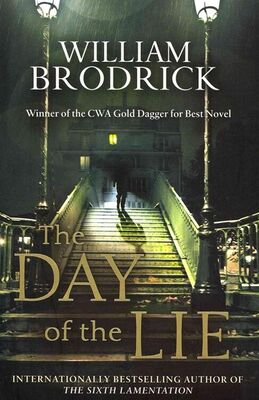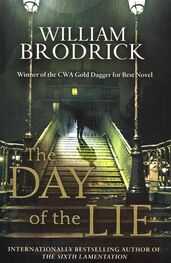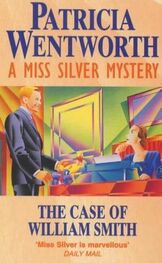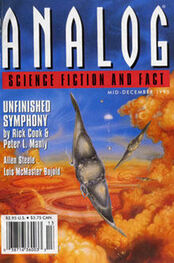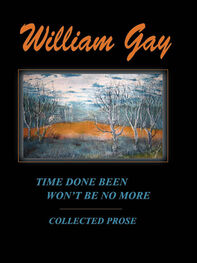‘Mr Brack,’ he managed, again, as if the name was all he had to say.
But Brack was in the foyer now, passing the reception desk, bright lights and glass everywhere, the well-heeled from the four corners of the earth looking idly on at an old man running away from a priest. Krystyna smiled and made a little wave. Abruptly Anselm stopped and gasped.
Standing at the entrance was Irina Orlosky She was holding out a gun, Brack’s gun, as if it were a Happy Meal. Her arms were wavering under the strain.
‘No, Irina, don’t…’ called Anselm. But she made no response: her eyes were wide and levelled; and Brack was heading towards her as if to welcome his old assistant. Screams broke out and people stumbled for safety while Brack came to a slow halt, expectant and resigned, the centre of a fast-widening circle. All at once — for Anselm — the glittering foyer became a kind of dripping cellar. Brack had returned to the place where the big decisions are made and where big people must swallow hard and seize the moment.
‘Don’t be frightened, Irina,’ he said. ‘Have courage.
Anselm tried to shout but time had seized up, and with it his reactions. His lips gradually parted, but then, suddenly came an immense bang… and Brack retreated three or four juddering steps, like a buffoon at the circus after being hit on the head with a frying pan. He paused, as if to think about it, and then fell on one knee. Seconds later — with striking gentleness, and slowly — he sank to the floor, rolling on to his back.
When Anselm reached him, he instinctively removed the glasses. Clouds had gathered over green flames — they’d come to life and were burning, but they were fast turning hard, becoming cold glass, the light seeming to vanish inwards. He let Myriam’s words fall out, still undecided if they were true or not: ‘You’re always more than your past.’
And then, all at once, Anselm noticed that he was surrounded by a hushed crowd. That Brack was dead, and that he was on his knees.
Roza was told of Brack’s death the same evening. She walked the length of her sitting room and slowly sat down, no longer quite present. Examining her face, Anselm wondered if he caught the slightest lift of that wave he’d noticed when she’d been told the contents of Brack’s file. Sadness, pity or compassion, he’d never know, but it had led to mercy And now with him dead, there was an edge to her quiet. It was almost as if she and Brack were linked by a remaining thread of understanding, that with the onslaught of terror, good and bad are swept into the one fire.
Celina seemed the most confused, battling — Anselm suspected — against the upsurge of relief which, once spent, made one feel vaguely unclean. Death did that. It demanded a moment’s thought, requiring all those remotely affected to look with honesty at the empty chair and check if the life extinguished had left anything worthwhile behind: and Brack’s hadn’t. John was indifferent, though he drew emotions vicariously from Roza and Celina, by turns reflective and furtively jubilant. Speaking to Sebastian on the phone, Anselm found him angry He’d wanted a trial. He’d wanted to see the law at work, its hands reaching back in time to reclaim lost ground, making it holy again. But it remained out of reach, unsanctified. Brack had died on a deep pile red carpet. It didn’t seem quite right. In truth, Sebastian hadn’t understood Roza’s justice: that in eschewing naked retaliation for the past she’d looked creatively forwards, where even a murderer without a defence had an open future.
Coverage by the media the next morning was spontaneously inter-connected, different commentators and presenters effectively speaking to each other in public. Brack’s death, fast upon his acquittal — peculiarly condemned and pitied by Roza Mojeska at one and the same time — ignited a debate that moved from paper to screen to radio: about the relationship between retribution and compassion. The argument became heated, even in the hotel’s corridors. The final words of the Shoemaker were discussed like never before. Roza, to the end, had been his loyal messenger.
Anselm’s reaction? The sight of the shooting itself profoundly disturbed him: the thud and the staggering backwards kept recurring before his eyes and ears… followed by the slow, comic drop to the ground. Even the death of a man like Brack stirred something in the stomach. The sense of sickness wouldn’t go away.
He also felt peculiarly responsible, asking himself if he should ever have entered the Warsaw Hall; if he should ever have taken that oyster to Frenzel; if he should ever have brought Irina Orlosky from Praga into the outskirts of Brack’s prosecution, linking his anticipated conviction with the recovery of her self-respect.
He went to see her in Mokotow, the prison built during the days of a tsar and now a remand facility. They really ought to pull it down, he thought, as Irina was brought to the visiting room on the ground floor. It stank of disinfectant — the sort of chemical used by Madam Czerny to wash her hair. The lights were glaring, the table and chairs bolted to the concrete floor. Anselm felt the past beating all around him. Roza’s shouts, Pavel’s groans — the cries of agitators and anti-Socialist elements. He listened to Irina’s quiet, controlled confession.
‘I don’t regret what I’ve done,’ she said, drawing a circle on the table with her finger. ‘Quite the opposite. I’m proud. Because now I can say that I, too, stood up to them. I hit back for all those others that were shot, and the hundreds of thousands whose lives they boxed away in a file… decent, reasonable people who’d never twist a woman’s arm or take a man’s life, even such a man as that. Like the old couple outside the court waiting for justice, holding on to that banner. Well, I gave it to them. I’ve done something good, something that was right.’ She wiped her eyes on a green McDonald’s sleeve, the tears appearing without the usual disturbance of emotion.
‘They’ll keep me in prison, but I don’t care. I’m free now, if you can imagine that.’
No, you’re not, thought Anselm, sadly Because in time you will come to regret this swift, personal justice. You will gouge at your eyes in self-hatred for having crossed this terrible line. Because you will gradually perceive that now you stand among the executioners; and you will long for the day when you’d simply been compromised by how you’d used a skill in languages.
‘I know about living in a cell,’ replied Anselm. ‘You have to face yourself like never before. Frankly it’s disagreeable… but persevere, Irina. The darker it gets, and no matter what you feel, just plough on: face the silent commotion. There’s a peace at the end, and it’s greater than the distress paid to get there.’ Anselm frowned with melancholy: she, too, deserved the Shoemaker’s strange mercy but it couldn’t stretch that far. It had reached Brack, but it couldn’t quite make those extra few inches to his typist. ‘Irina, promise me something.’
‘Yes.’
She’d stood up because their short time together had come to an end. The female guard had opened the door with a key attached to a heavy chain hanging from her belt. She’d given that c’mon-get-moving tilt with the head that all prison staff learn.
‘When you get out, don’t go back to Mr Frenzel.’
‘He’s given me notice.
Already? Would a strange retribution ever fall upon that man? A slate from a roof would do. But no, it wouldn’t happen. The only finger justice would ever place upon his sleeve was a parking ticket.
‘Thank you,’ Irina blurted out at the door, pulling back from the guard.
‘What for?’ He turned, seized by the throat.
Читать дальше